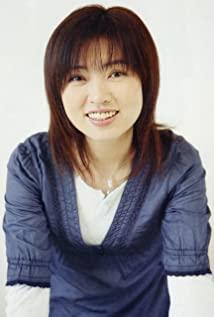"Red Pepper" is a feminist animated film directed by a man about the interweaving of dreams and reality. Through this film, it can be seen that the director's analysis of dreams is deeply influenced by the Freud-Lacan School of Psychoanalysis. But is it possible to make a truly feminist film within the framework of psychoanalysis, which is essentially a patriarchal system? What is the future direction of women's film? This is the important discussion in this article.
The predicament of feminism
According to Freudian psychoanalysis, women have long existed as symbols of patriarchal exchange: either way, the starting point is the women who are symbols of patriarchal exchange in classic films. These women are manipulated by men and defined by men's desires and fantasies, so that they can only constitute the false center of the film's discourse, women who appear as women on the screen do not exist, they are at best "non-male", and they are not related to men. The social rules have no connection, so the binary gender oppression pattern is reinforced in the film.
1. Desire vs. fear - the traditional Freudian approach
In the first few shots of the opening circus, when men and women enter from opposite sides of the stage, it seems to herald the antagonism of men and women in the film. Red Chili pepper first appeared as a clown in Fanchuan's dream. The clown has always been a symbol of alienation in the Western cultural context, often serving as a source of human fear. The familiar and fearful feelings of human beings seem to correspond to the complex attitudes of men towards women since ancient times: According to Freud, men desire women (from childhood Oedipus complex), and women lack penis because of Caused castration anxiety, threatened by women as the Other, and began to identify with the father. In order to solve this binary dilemma, men generally have two ways to relieve their gender cognitive anxiety: one is to repeat the original trauma, that is, sadism; the other is fetish.
In the film, Oyamauchi is the most typical representative of men: on the one hand, he is jealous of the too powerful and mysterious Dr. Chiba, and is deeply attracted by her, materializing her as the goddess in his dreams; on the other hand, in order to relieve the threat and regain his self-esteem, To abuse her, so as to achieve the pleasure of punishment and control.
2. Mirror image vs. dreamland - a continuation of Lacan's psychoanalysis
If we look at Chiba's character arc from Lacan's theory, we can see how Chiba is liberated as an image repressed by traditional patriarchal society (especially Japanese society): neat business attire, meticulous work, professional Strong sense; cold personality, hard-mouthed and soft-hearted. With a strong sense of mission on her shoulders, everything she did was never for herself, so to some extent she was kidnapped by the men around her.
There are many times in the film Chiba's examination of herself or another self (red pepper) in the mirror image. Chiba is a more detached personality of Chiba. She has no worldly troubles, no attachment to personnel. It can be said that she is the projection of Chiba's subject's ideal, the product of the subconscious release in the suppressed reality. Chiba examines the corresponding red pepper in the dream/mirror, just like the audience in the movie empathizes with the characters in the movie, and the baby identifies with himself in the mirror.
According to Lacan's theory, as the infant matures, it recognizes the self in the mirror, and the mirror image is more perfect than the self experienced in the body. That is to say, the mirrored self becomes the object of misidentification, the ideal self, an externalized subject, and at the same time this subject is re-internalized into a self-ideal, laying the foundation for future identification with others. This takes care of the plot where Chiba and the red pepper blend together at the end.
The rational Chiba's attitude towards the perceptually free red pepper changed from resistance to acceptance. At first, Chiba did not admit that she was a red pepper and kept a distance from it. In the end, Chiba achieved a solution to her predicament through dreaming: dreaming here is a way to face her true inner desires. Chiba decided to face her heart and stop disguising herself; she wanted to go for the sake of the person she loves, instead of focusing on the overall situation.
3. Patriarchy vs. Feminism - Conflict of Binary Oppositions
What we are facing here seems to be an old-fashioned topic: if Freud and Lacan's psychoanalysis is the product of a patriarchal society, can this theory be used to oppose patriarchy? Feminist pioneer Laura Mulvey thought it was possible. To realize anti-patriarchy in film, we must first understand the most fundamental crux of how the unconscious of patriarchal society determines the form of film.
It is undeniable that the current society we live in is a society in which the male dominance system operates, and there is a complete set of male dominance ideology, which strengthens the rationality of its ideology through all aspects of society such as cultural, political and economic systems. , and this male-centered binary opposition mode also keeps women in an objectified and marginalized second sex position. Therefore, for true feminism to move forward, the most important thing is to eliminate the concept of patriarchy that permeates the body of thought and culture. As an important representation system, film has naturally entered the field of feminist reflection, which makes the cultural struggle on the screen have the possibility of becoming political. Feminists let us learn to reflect, we must learn to ask the screen: where is the position of women?
The division of feminism
The women in Jin Min's writings are always respectable and lovely, especially in "Red Hot Chili Pepper", where the status and discourse of women are placed prominently. Feeling torn apart all the time.
1. Gaze vs. Anti-Gaze - The Fragmentation of the Female Image
(1) Women who are stared at
As an animated film with a big selling point of showing spectacles, this film undoubtedly also shows female characters as a specific spectacle. First of all it is undeniable that the body of the red pepper is consumed in the flakes. As the name Red Hot Chili Pepper suggests, her image throughout the film is a masculine stimulant and seductive: with flamboyant red hair and close-fitting clothing to accentuate her feminine curves.
Red peppers don't mind using sex to seduce men, and even go in and out of men's bodies at will in dreams. Several sexual cues in the film: hotels, lip prints, dating bars...all show that red peppers are the object of masturbation in men's minds. Throughout the red pepper's cross-dressing roles: clowns, acrobats, movie heroines, dolls, costume maids, Sun Wukong, elf, sphinx, mermaid, Pinocchio, elevator guide... Also basic In line with the audience's expectations for visual pleasure.
(2) Anti-gaze women
However, such a gaze has not been reduced to a purely voyeuristic means. In the film, there is no close-up enlargement of the female body and the narrative is suspended. Instead, the naked female body parts are presented generously and naturally. Whether it is Chiba or red pepper, although the female characteristics are very obvious, the dress is not exposed. The women in the film walk between chastity and sensuality, looking directly at their bodies with a more open attitude.
Compared with the traditional female characters, the red pepper is more active. In her dreams, she can constantly move freely between advertisements and screens; at critical moments, she appears more rational and decisive than men. She is no longer a passive, pitiful woman who can only wait for rescue.
2. Masculine vs. Anti-masculine - The Fragmentation of the Male Image
(1) Masculine men
According to Freud's description, on the one hand, men have a strong tendency to conquer and abuse women; on the other hand, they will show the nature of fetishes. Men's fascination with objects is everywhere in the movies: dolls, movies, food, specimens... Chiba, as a woman, is constantly being possessed and objectified by men in various traditional forms.
In the police officer's dream, she became a passive, glamorous woman waiting to be rescued by the hero; in the director's dream, she melted into his body and blew to make it explode; in the world within the hill, she was Made into immovable butterfly specimens, which can be manipulated at will; when the chairman's lower body turned into a tree root symbolizing the male genitalia and drilled into Chiba's mouth, it was reminiscent of the Japanese Ukiyo-e painting by Katsushika Hokusai. The scene...
(2) Men with feminine temperament
Compared with the relatively simplistic female images in the film (pure girl and Gao Leng Yujie), the portrayal of male images in this film is much richer and deeper. The heroic male police officer is an escapist waiting for redemption: repression in reality makes him release himself in a dream. The female-oriented dressing of the ice room, Tokita's image of a science madman, and the implicit same-sex elements in the film all dispel male hegemony to some extent. The patriarchal society is not only imprisoning women, but also inhibiting the diversity of men's own groups.
3. Women vs. Men - The Split of Narrative Perspectives
(1) Male perspective
The protagonist of this film can be said to be Chiba (red pepper) without a doubt, but the point of view of this film is composed of the red pepper and the police officer Fanchuan. We can think of Fanchuan as a projection of the director. Fanchuan's feelings for the movie in the movie seem to confirm this to us.
In the beginning, the point of view of the circus was dominated by Officer Fanchuan. We appear in his dream, and Chili peppers emerge as a savior. The ending of the ending ended with Fanchuan going to the cinema to watch the new film recommended by Red Chili Pepper. Although the red pepper is the manipulator behind both the opening and the ending, the wandering point of view still implies that the director is not firm on the position of women.
(2) Female perspective
As the only main female character in the film, Red Pepper wanders among the multiple males around her, addressing the problems they generate/avoid, but no one ever pays attention to her own needs and problems. Everyone needs her, but everyone ignores her, even she herself ignores and suppresses her own desires. She has always been an outlier. She keeps entering the world dominated by others, without her own dream. No one can save her except herself.
4. Father vs. Mother – The Influencer Split
(1) Defective father
There are two so-called patriarchal figures in the film: the director and the chairman. Among them, the director is an incompetent representative of the patriarchy: he has limited abilities and is a victim of manipulation; although he is the guiding image of his father in reality, he reveals his repressed desire for red peppers in a dream. The chairman is essentially a control freak and a sadist: his botanical garden symbolizes the raw and wild vitality, the worship of life, and the mystic concept of rejecting scientific intervention is essentially an excuse for absolute dictatorship. The refusal to communicate and change is actually a consistent gesture of the patriarchal dynasty for thousands of years: to endow the existing patriarchal social order with divine sublime and inviolability. Once technology has a tendency to eliminate level boundaries, it must be suppressed.
(2) Absent mother
In this film, we can only see one female figure: Chiba/Red Pepper. The female figure is isolated, the maternal lineage is absent. In the existing patriarchal society, Chiba is surrounded by a variety of men, but there is no same-sex contrast. The maternal lineage thus becomes an invisible being, its continuity fragmented and repressed. In such an environment of a negative father figure and absent mother figure, the traditional patriarchal dilemma is broken, but Chiba is thus placed in a vacuum and a more disordered state.
The feminist compromise
1. Challenge vs. Compromise - A Breakthrough in the Mystery of the Sphinx
The Mystery of the Sphinx is an important metaphor in "Red Hot Chili Peppers" and appears several times in the film. Whereas the sphinx is only a symbol, the Oedipus plot is the real subject of reflection. Ancient Greek myths and legends have long been regarded as the origin of Western civilization, and both the history of the Oedipus complex and ancient history suggest a transition from an earlier "matrilineal" stage to a later "paternal" or "patriarchal" system. By changing the way in which civilization is established psychologically, it may be possible to challenge the origin of patriarchal power through psychoanalytic theory. It is worth noting that Laura Mulvey, who is the vanguard of feminism, once produced a feminist film called "The Mystery of the Sphinx".
(1) Possibility of challenge
The myth of Oedipus is first and foremost about the father-son relationship, and the female part is very marginal. However, the narrative structure of the story opens up the possibility for other ways of telling. In this myth, feminist consciousness is the polarized male and female that can influence patriarchal discourse and destabilize the order. The curiosity and puzzle-solving spirit of the Sphinx opens up closed problems of oppression, thereby maintaining the power of the principle of nondeterminism. As such, Mulvey believes that a reinterpretation of the Sphinx mythology may subvert traditional male-written history.
A woman typified by Chiba, like the mythical Sphinx, tries to solve the mystery of the theft of the DC mini. Such a puzzle-solving process is also a process of dissolving/subverting the myth of patriarchy, and will inevitably be suppressed by men from behavior to discourse. At the same time, dreams represent another form of language, another way of entering the unconscious, discourse unmodified by formal male culture. Dreams are an important way for women to return to mythology, to the kingdom of the Sphinx before Oedipus and male culture. In the beginning, Chiba didn't even have a dream of his own. And only in the dream, Chiba can gallop freely as the incarnation of red pepper, which itself is a kind of irony to the patriarchal society.
If the male Oedipus is a complete human, the corresponding female Sphinx is half human and half beast. In the film, Yamauchi said that she was not suitable for the sphinx's appearance, because the mutation of the female body is a kind of resistance to the patriarchal society's body politics. It deconstructs the male/female, human/animal dualism presupposed by patriarchal civilization. The sphinx mythology endows the female body with the characteristics of openness and incompletion, which provides the possibility for the reconstruction of the female body in a new state.
(2) The negativity of compromise
The myth of Oedipus shows a paradox: on the one hand, women (sphinxes) outside the patriarchy represent the unconscious and thus constitute a threat to the male order; on the other hand, women living in Women in a patriarchal system feel threatened by male culture, living in a society ruled by their fathers and repressed by their mothers (Jocasta). So, how to take on or give up taking on this role is the source of the above paradox.
At the end of the film, Chiba chose Tokita among many men, which is the manifestation of such a paradox. First, women did not choose the ideal male role model in a patriarchal society, but made their own choices. In the traditional narrative system, Koyama's appearance and Fanchuan's character setting are undoubtedly more in line with male norms, but Chiba is the female object they objectified, and it is precisely Tokita who never revealed his intentions towards her. In the film, Shitian's masculinity retreats, weakening the traditional gender binary. In fact, rather than being a male in the film, it is better to say that he is a child whose gender consciousness is not yet obvious, and whose unconventional personal life has not yet been fully influenced by the concept of patriarchy.
What Chiba values is not Tokita's appearance, but her soul; what she pursues is not the worldly vision, but the inner call. The unexpected and reasonable reversal at the end of the film undoubtedly reflects Jin Min's spirit of rebellion against the traditional social value system. Therefore, such a choice can be seen as the author's provocation and arrogance of the patriarchal social system.
But no matter who she chooses, Chiba still has to choose a man to rely on in the end, so she chooses to combine with someone who can never be defeated, just like at the end of every movie, women must get themselves in the audience's expectations the same as the home. So what should women do? It seems that women came from men and belonged to men, and finally reconciled with the patriarchal society, especially when the fact that the surname Chiba Suizhang was deliberately emphasized in the ending, it can be seen that her resistance eventually became a kind of negativity and insecurities. Thorough feminism.
2. Women's Writing vs. Men's Writing - Where Women's Films Go
If the previous mainstream film form was completely controlled by patriarchal ideology, then the only way to escape this control is to look for alternative forms outside the discourse of patriarchal film. But Molvey's early theoretical classic, Visual Pleasure and Narrative Cinema, offered no possibility for this alternative. People realize that the current film is dominated by men, but what should a real feminist film look like?
(1) The exploration and dilemma of women's writing
Mulvey later began to actively practice his own theoretical path in image expression and went further. Take her "The Mystery of the Sphinx," which tells the story of how a young mother, Louise, becomes aware of her place in the culture and tries to find her place in the symbolic order. In this film, Morvey tries to get rid of the traditional narrative method and break the traditional voyeuristic viewing mode, such as using a fragmentary narrative method, the protagonist looking directly at the camera, and using a series of single panning shots containing 360 degrees to refract Out of the heroine's state of subject consciousness. The new film language expresses the author's disdain and rejection of the traditional patriarchal model in which women are seen and desired objects.
But audiences start to lose interest when the female characters are no longer the star-gazing object on the screen. Women's cinema continues to be on the fringes of culture as a film for the opposite, which is the limitation of Molvey.
The ultimate question, then, is how to create an anti-movie that is acceptable to the general audience while not being propaganda and rhetorical (as many New Left and feminist films are). For if women do not seek to be included in the center of cultural production, they only make themselves more excluded from the center, which runs counter to many feminist political goals.
(2) Enlightenment and limitations of male writing
Female characters have also been beloved by male creators since time immemorial. In fact, many independent and strong female images in ancient and modern China and abroad were created by men. The reason is that women themselves, like countless groups in society that have been ignored and suppressed (similar to the proletariat), are disadvantaged, repressed, and have a natural basis for resistance; and they have a wider audience. Women's resistance to patriarchal society is often deeply connected with the desire of the proletariat to overthrow the existing capitalist society (capitalist society is inherently patriarchal).
Jin Min once said that he always uses women as the protagonists in his films because he thinks women are very mysterious creatures. Here, he reveals his attitude towards women: a kind of non-male Other. He respects and loves women, but he does not regard women as his own kind.
In Jin Min's films, the female element is a mythological construction closer to the "maternal body", and in addition to having the body of "all rivers and rivers", the maternal body also has unparalleled tenacity and tension, which contrasts with the toughness of male power. At the end, Chiba gets a new life by being eaten by Tokita, and grows into a woman by sucking the chairman. The ending of this devouring and anti-devouring seems to propose a solution for how women deal with the oppression of the patriarchal society: not blindly resisting, but absorbing and compatible, because the existing system cannot be fundamentally subverted. It also seems to imply that there can be no change at all for women within the structure of the bourgeois narrative.
In this way, the ending is a hug and a compromise. If women's films are to enter the mainstream, it seems inevitable that some kind of reconciliation with patriarchy is inevitable. Jin Min did it, but it also highlighted the limitations of male directors and even female films themselves. In the end, when Chiba finally returned to real life, merged with Chili Pepper, and played the social role she was supposed to play, I didn't feel comfortable, just sad.
4. Conclusion
To sum up, we can see that there is a certain degree of break in patriarchy in "Red Pepper", and it has successfully connected the voice of women with the mainstream discourse system to a certain extent, but this resistance is incomplete. . Jin Min's wandering stance on feminism makes the film still not escape the control of patriarchy in essence. The resistance of women and the status of the mainstream seem to be a multiple-choice question that can only be chosen.
references:
"Film and Culture: Film History, Women's Film, Postmodern Aesthetics" Qin Xiqing
"Film Criticism" Dai Jinhua
"Feminism" Li Yinhe
Original public account link
View more about Paprika reviews











